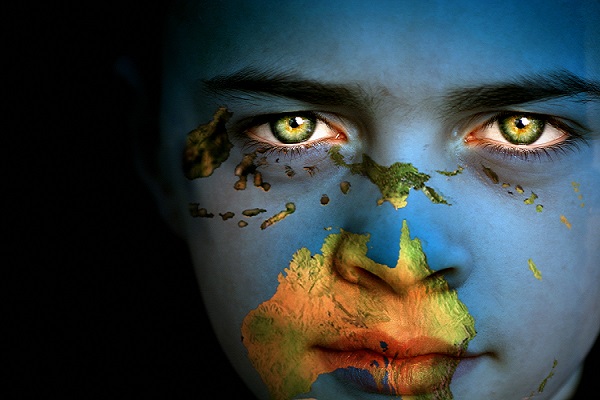A Child and its Value in Our Lives

There are very few people in the world who would disagree with the idea that children are important not only to their parents and families but also to their communities and society as a whole. However, this doesn’t mean that everyone understands children.
In this article, we will look at what a child actually is from both a biological and societal standpoint. We’ll discuss their basic physiological and emotional needs and the resources available to parents to help them meet those needs.
Through all of this information, we will help you see that children have intrinsic value and why it is essential for all of us to protect them.
What Is a Child?
It might seem like a foolish question, but it is worth taking some time to clarify it before we jump in, especially since there are different ways of looking at it. Simply put, a child is a young human being. But when does a child stop being a child? There are three ways of defining that moment.
Biological Children: The first is biological. From a biological perspective, a human being is a child until they reach puberty or physical sexual maturity, but this definition is not without its problems. First of all, it is imprecise since everyone reaches puberty at different ages and under different circumstances.
Even then, the exact moment of sexual physical maturation does not necessarily correspond with the rest of growth. According to the American Academy of Orthopedic Surgeons, bone growth continues at least into a person’s early teenage years and typically beyond. Brain growth continues into a person’s early to mid-twenties.
Legal Childhood: What is more, reaching physical maturity has little to do with a person’s mental capacities and whether they are ready for the responsibilities of adulthood, which is the second method of defining a child. Legally speaking, a child in the United States is typically any person under the age of 18 years.
They do not have the legal authority to make many of their own decisions, including where they live, whether or not they attend school, whether they can or cannot work, the ability to enter into legal agreements and contracts (including marriage), and other choices.
Most societies and countries in the world also place legal parameters to define the difference between children and adults. Many use 18 as the age of majority, but others differ. Some establish adulthood as young as 15 and as old as 20 or 21.
Their Self-Sufficiency: The third definition of a child is less scientific (physically or numerically) and more emotional or behavioral. It is also much more personal. Under this way of thinking, a person becomes an adult when they are responsible enough to meet most of their needs and mature enough to seek support for those needs they cannot meet. In other words, they are relatively self-sufficient humans who contribute positively to their society.
Even though it is not scientific, it is significant because it can help us see that in order for humans to move from childhood — a state of dependency — to adulthood, it is all of our responsibility to do our part to provide for all children. Let’s take a look at what those needs constitute.
Do Children Have Rights?
Absolutely. Even though they cannot make decisions for themselves legally, children have rights as individuals. This means that they have certain protections and guarantees regardless of their circumstances or their parent’s wishes.
What Does a Child Need?
You may have heard the saying that it takes a village to raise a child, and it is undoubtedly true. Guiding tiny humans through fragile years of development and meeting all of their varied needs along the way is no small feat.
A Child’s Physical/Physiological Needs
Children have several basic physiological needs to aid in their healthy development. Abraham Maslow, a prominent 20th-century psychologist, famously published a hierarchy of needs for children that is still widely accepted and utilized today.
Maslow postulated that in order to meet its higher-level needs, a child first and foremost must have the basics: enough nutrition, clean drinking water, adequate rest, and physical comfort. In real life, what this means is that if a child does not have any of these necessities, their little brains will not be able to focus on learning, communicating, or becoming productive members of society. Instead, they will be too fixated on solving the urgent issue at hand.
A Child’s Social/Emotional Needs: Safety
The next level of needs involves a child’s safety. While safety certainly has a great deal to do with meeting physical needs, we have categorized it with social and emotional needs because of the profound psychological impact of danger (real or perceived) in childhood.
On a basic level, safety means that a child’s physiological needs are met consistently. But safety is more complicated because, for children, it is so incredibly social. Like the young of many other animal species, children know that they cannot fend for themselves. They are aware that they are dependent on others for protection, food, and survival. Therefore, having dependable, responsible adults in their lives is critical to healthy brain development in children.
Now, this does not mean that kids need perfect parents (quite the opposite, actually). But they need to know that the adults tasked with their care will not deliberately put them in danger or act in a reckless manner that would endanger them. Then, they also have to feel secure that they can seek out the adults in their life for help with whatever they need.
Therefore, if a child cannot depend on their parents or other adults around them, they will not feel safe. This scenario is just as destructive as not enough food or sleep in terms of their brain development. That is why it is so crucially important to our society’s health that we all protect the children around us, whether we know them or not.
A Child’s Social/Emotional Needs: Belonging and Esteem
While safety is the most important emotional need for a child, it is not the only one. To develop into healthy and happy adults, children also need a sense of belonging and esteem.
In terms of belonging, this first and foremost applies to a child’s family. Children absolutely must feel loved and accepted by their families. It may seem as though this is a simple need to meet for most parents and families, but it is not. All human beings show love and affection differently. Parents and other adults in children’s lives must learn to “speak their language” when it comes to love and communicate in ways that children understand.
That is also why children need to have many caring and safe adults in their lives. Different people can provide love and acceptance in other ways that all help meet the child’s needs.
Especially as they grow into school-age, pre-teen, and teenage children, the acceptance of their peers and a sense of belonging in society at large grows in importance. Unfortunately, children who do not feel valued and loved at home may have a more challenging time achieving it outside of the house. These children are more prone to acting out, which can make them social outcasts.
In addition, they may have difficulty recognizing acceptance and affection among their peers or other members of society if they did not first learn it at home. This can severely impact their long-term mental health, quality of life, and ability to become functioning members of society.
Finally, esteem and self-actualization are the highest levels of needs in Maslow’s hierarchy. This level has a great deal to do with how a child feels about themselves and sees themselves in relation to the rest of their society. Many factors can lead to issues with this level, especially trauma or a lack of lower-level needs being met.
It may not seem important, but if a child does not see that they have any value to their society, they will not improve it or contribute positively to it. While there will always be outliers, society needs the majority of its members to desire to improve it and work for the common good. If too many children in our community grow up without a sense of belonging and importance, progress in every area will slow.
Take Maslow with a Grain of Salt
We want to emphasize that, even though we have used Maslow’s hierarchy of needs as a model, we are not arguing that any of a child’s needs are unimportant or even less important than any others. It might seem cliche to blame psychological issues that emerge later in life on childhood, but there is some truth to it as well.
A child’s brain develops at an exponential rate. The growth it experiences during these years is critical. Interruptions in their basic needs — very often understood as trauma — have a profound effect on a child not only at the time but throughout the rest of their lives. The quality of a person’s childhood very often determines the quality of their life.
If we want to stop public health and social crises such as drug addiction, sexual abuse, domestic violence, and many more, we need to start in childhood. We must protect our most precious, most vulnerable people when they are young.
Luckily, there are many resources and programs available to parents and other concerned adults to help children. They are there to meet the physiological needs and the emotional and social ones, as well as provide resources to support caregivers.
Resources Available to Meet the Physiological Needs of Our Children
There are many resources that are available to help caregivers provide for the physiological needs of children. There are several government assistance programs for families experiencing food insecurity, including WIC (Women, Infants, and Children, usually run locally), food stamp programs, SNAP, and free and reduced school lunches.
There are also private organizations that can help. Very often, local churches and community centers offer free meals or help with getting enough to eat, especially for children. Similarly, these organizations can help with providing adequate clothing, school supplies, and other necessities.
In terms of housing, local, state, and the federal government all provide many housing resources to find affordable housing, help pay for housing, and more. Visit Housing and Urban Development to learn more about options. They also help families buy homes through Federal Housing Administration programs.
Most states have health insurance programs for children and if they don’t, then the federal government does. These insurance programs can help meet the medical needs of children. This applies not only to children who have special medical needs but also to healthy children. They still need checkups, vaccines, and access to medicine when they need it.
Resources Available to Meet the Emotional and Social Needs of Our Children
Most people are familiar with some of the institutions that exist to protect the safety of our children. All levels of law enforcement agencies and county and state departments of social services all work to prevent and punish crimes against children. There are also independent children’s advocacy centers that provide all kinds of support to their communities.
In addition, most states provide resources to equip mandated reporters (people who are required by law to report cases of suspected child abuse) to recognize and report. Mandated reporters usually include anyone who works with children or in a school as well as first responders, medical professionals, and mental health workers.
There are many resources available to help with children’s other social and emotional needs. Schools are tremendous resources, and programs in many states and localities assist with childcare or Head Start preschool programs.
In addition, health insurance companies are required by law to cover mental health services. If you suspect that your child may have a developmental disorder, learning disability, emotional or mental health issue, you can and should take them to see a specialist. These people are trained in working compassionately with not only children but their parents and other family members as well. Even if you just think that your child would benefit from having someone to talk to, your health insurance may very well cover it.
Never underestimate the value that extracurriculars, sports, and other activities can have for a child’s development. Whether they’re a budding artist, dancer, or baseball player, there are resources to make these programs more accessible to families financially. Most also work to be inclusive in terms of diversity and ability.
Why it Is So Important for Parents/Caregivers to Access These Resources
Many people hesitate to accept help, whether from someone they know, a government agency, or a private or religious organization. But pausing in a time of need can be almost as detrimental. Remember that it is the parents’ or caregivers’ responsibility to make sure all of their children’s needs are met. If they start struggling in one area — food, for example — they will inevitably neglect the rest.
This is true even beyond Maslow’s hierarchy. Even if a parent has plenty of financial resources to provide, they might start forgetting about bedtime or proper nutrition if they face overwhelming obstacles with their child’s emotional needs. We need to think about caregiving as a holistic experience and think about caregivers as just one (albeit the most important) contributing factor in their children’s lives.
It is important to remember that there is no shame or stigma attached to asking for help. Most people view asking for help as one of the strongest and bravest things that a person can do. This is even more true when it comes to helping children.
In addition, parents need just as much support themselves. If you are a parent or caregiver, we strongly encourage you to reach out within your network and your community to find the support you need. There are groups for all kinds of parents: adoptive parents, traditional parents, distant relatives who are parenting, step-parenting, co-parenting and divorced parenting, single parenting, parenting twins, same-sex couples, religious families, and so many more.
Perhaps at no other time in most of our lives was the need for community more apparent to everyone than during the COVID-19 pandemic, when many families, whether they struggled or not, were cut off from the rest of their families, friends, and other resources.
Let’s not forget the lessons we learned, and let’s set a great example by passing them down to our children. That way, the next generation will be a generation of helpers and heroes.
Children Are the Future
It might seem like a tired phrase, but that doesn’t distract from its veracity. Without a hopeful, healthy, and happy population of young people, we — a family, a country, or a race — cannot survive.
Protecting and raising the next generation has both a cultural and a biological history with human beings. From time immemorial and across every living species, the impulse to procreate and survive has been one of our most elemental.
Perhaps more importantly, every society, religion, culture, and people has provided some way for the rearing of children. Children have always had value and worth in human societies. Valuing and protecting our children is one of the most basic and quintessential parts of the human experience.
What Can You Do to Help?
Let’s close out on a positive note! We’ve compiled just a small sampling of some of the ways that we can all help raise healthy and well-adjusted children. These range from everyday habits to volunteer opportunities, perfect for anyone’s lifestyle.
Set a good example: You have a perfect opportunity to set an excellent example for the children in your life every moment of every day. This is true whether you’re a parent, grandparent, aunt, cousin, neighbor, teacher, nurse, parent’s friend, or stranger on the subway. If you yourself work to be a positive contributor to society, the kids around you will also see that, in whatever capacity you interact with them.
Support local sports and arts programs: There are many ways to support children’s extracurricular activities, which help foster healthy social and emotional growth in kids. Pay attention to flyers or posts about charity nights at restaurants for teams or groups. Give your business to companies that sponsor local teams and programs, and make sure they know you’re loyal because of their support. Even buying a couple of boxes of girl scout cookies when you see them for sale helps fund these endeavors.
Work out at the YMCA: The YMCA is a non-profit organization dedicated in large part to youth development. They provide financial assistance for childcare and youth sports, and they sponsor many other programs, including a mentoring program and a Youth in Government program. Their gyms are usually very lovely and you know that your money is going to a good cause.
Be there for others: Whether it’s the new mom next door, your friend who is a teacher when grades are due, or any other person responsible for the welfare of children, be there for them. They are certainly going to have rough days and need support. Keep an open door to be there for them when they need you so that they can show up 100% for the kids in their life.
Plan carefully: Having a child is the absolute most amazing thing that you can do with your life. Any parent will tell you that there is nothing like the love they have for their baby and how much joy they get from the experience. But they will also tell you that it is a life-altering event, and they’re not wrong. We encourage you to plan carefully, no matter what stage you’re in: not ready to parent, considering it, pregnant, raising a toddler, looking ahead to middle school, or starting to think about college.
All You Need Is Love
Children need so many things to become healthy and happy adults, but love can provide them all on a grand scale. When we can see past our adult grievances and focus on the most innocent beings among us, we will be moved by the love we feel. If we can come together to take care of them as a society and a people, we will see our world transformed.


